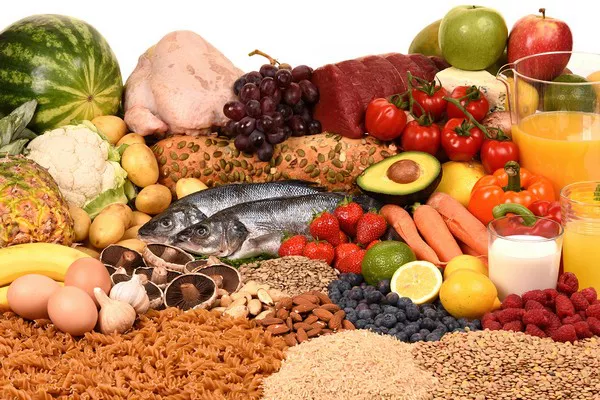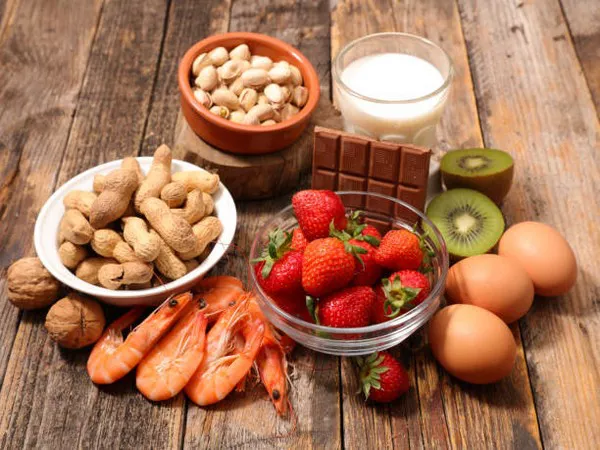For individuals aiming to gain muscle mass, protein consumption is a crucial factor that cannot be overlooked. Protein serves as the building block for muscle tissue and plays a pivotal role in muscle repair, growth, and adaptation. In this comprehensive article, we will delve into the question of how much protein one needs to consume to maximize muscle gains effectively. By understanding the importance of protein intake for muscle development and the optimal quantity required, you can tailor your nutrition plan to support your muscle-building goals.
The Role of Protein in Muscle Growth
Muscles are primarily composed of proteins, which are made up of amino acids. When we engage in resistance training or strength exercises, our muscles undergo stress and microdamage. Protein consumption is essential for several reasons when it comes to muscle growth:
- Muscle Protein Synthesis: Protein provides the necessary amino acids to stimulate muscle protein synthesis (MPS). MPS is the process through which the body builds new proteins, repairing and growing muscle fibers. Adequate protein intake is crucial for maximizing MPS, leading to increased muscle mass and strength over time.
- Net Muscle Protein Balance: Achieving a positive net muscle protein balance is vital for muscle growth. It occurs when muscle protein synthesis exceeds muscle protein breakdown. Consuming sufficient protein ensures that the body has an abundant supply of amino acids to support muscle repair and growth, maintaining a positive protein balance.
- Hormonal Regulation: Protein intake also plays a role in hormonal regulation, particularly stimulating the release of insulin and insulin-like growth factors (IGFs). These hormones are involved in promoting muscle protein synthesis and inhibiting muscle protein breakdown, creating an anabolic environment conducive to muscle growth.
Protein Requirements for Muscle Gain
Determining the ideal protein intake for muscle gain is a complex process that depends on various factors, including an individual’s body weight, training intensity, training status, and overall calorie intake. While there is no one-size-fits-all approach, several guidelines can help you estimate your protein requirements for optimal muscle growth:
- Recommended Daily Allowance (RDA): The RDA for protein intake, set by various health organizations, is typically based on the average needs of sedentary individuals. However, for those engaging in regular resistance training or seeking muscle gain, the RDA may not be sufficient. The RDA for protein is around 0.8 grams per kilogram of body weight or 0.36 grams per pound. This recommendation primarily focuses on preventing deficiency rather than promoting muscle growth.
- The Protein “Threshold”: To support muscle growth, it is generally recommended to consume protein above the RDA. Research suggests that a protein intake of around 1.6 to 2.2 grams per kilogram of body weight or 0.7 to 1 gram per pound may be more suitable for individuals aiming to build muscle. This range provides a higher protein dose to optimize muscle protein synthesis and support muscle recovery and adaptation.
- Protein Timing and Distribution: Along with total protein intake, the distribution of protein throughout the day is important for maximizing muscle protein synthesis. Spreading protein consumption evenly across meals, including a sufficient protein dose in each meal, can help maintain a steady supply of amino acids for muscle repair and growth.
- Individual Variability: It’s essential to recognize that individual variability exists when it comes to protein requirements. Factors such as body weight, body composition, training status, and genetics can influence an individual’s protein needs. Trial and error, along with regular monitoring of progress, can help determine the optimal protein intake that works best for you.
Optimizing Protein Sources for Muscle Gain
In addition to considering the quantity of protein, the quality and sources of protein also play a crucial role in muscle gain. Here are some protein-rich foods that can be incorporated into your diet to support muscle growth:
- Lean Meats: Lean meats, such as chicken, turkey, beef, and pork, are excellent sources of high-quality protein. They provide essential amino acids necessary for muscle repair and growth. Opt for lean cuts and remove visible fat to minimize saturated fat intake.
- Poultry: Poultry, including chicken and turkey, is another protein-rich option. These lean sources of protein are low in fat and can be prepared in various ways to add variety to your meals.
- Fish and Seafood: Fish and seafood, such as salmon, tuna, trout, and shrimp, are not only rich in protein but also provide omega-3 fatty acids. Omega-3 fatty acids possess anti-inflammatory properties and can support muscle recovery and reduce exercise-induced muscle soreness.
- Eggs: Eggs are an affordable and versatile protein source. They are rich in high-quality protein, essential amino acids, and various vitamins and minerals. Including eggs in your diet can provide a diverse range of nutrients that support muscle growth.
- Dairy Products: Dairy products, such as milk, yogurt, and cheese,are excellent sources of protein and also contain essential nutrients like calcium and vitamin D. Greek yogurt, in particular, is a popular choice among fitness enthusiasts due to its higher protein content compared to regular yogurt.
- Plant-Based Proteins: Plant-based sources of protein can also be incorporated into a muscle-building diet, especially for those following a vegetarian or vegan lifestyle. Legumes, such as beans, lentils, and chickpeas, are rich in protein and fiber. Tofu, tempeh, and edamame are soy-based options that provide a complete source of protein. Additionally, quinoa, chia seeds, and hemp seeds are plant-based protein sources that offer a good amino acid profile.
Considerations for Protein Intake
While protein consumption is essential for muscle gain, it’s important to keep a few key considerations in mind:
- Total Calorie Intake: To build muscle, you need to consume a calorie surplus, meaning you consume more calories than you burn. Protein should be a part of this overall calorie intake, but it’s crucial to ensure that you’re meeting your energy needs through a well-balanced diet that includes carbohydrates and fats as well.
- Individual Response: Each individual may respond differently to varying protein intakes. Factors such as genetics, training program, and overall diet can influence how your body utilizes protein for muscle growth. Monitoring your progress, including muscle gain, strength improvements, and body composition changes, can help determine the effectiveness of your protein intake.
- Hydration: Protein metabolism requires adequate hydration. Make sure to drink enough water throughout the day to support optimal protein digestion, absorption, and utilization.
- Timing and Pre-/Post-Workout Nutrition: While overall daily protein intake is crucial, paying attention to pre- and post-workout nutrition can also enhance muscle protein synthesis. Consuming a protein-rich meal or snack before and after your workouts can provide the necessary amino acids to support muscle recovery and growth.
- Individual Nutritional Needs: It’s important to remember that protein requirements can vary based on an individual’s goals, health conditions, and dietary preferences. Consulting with a registered dietitian or nutritionist can help you tailor a nutrition plan that aligns with your specific needs and goals.
Conclusion
Protein is an integral component of any muscle-building journey. To optimize muscle gain, it’s recommended to consume protein above the RDA, with a range of 1.6 to 2.2 grams per kilogram of body weight. However, individual variability exists, and it’s essential to monitor and adjust your protein intake based on your progress and goals.
Remember, protein is just one piece of the puzzle. A well-rounded nutrition plan that includes a calorie surplus, balanced macronutrient distribution, and adequate hydration is crucial for maximizing muscle growth. By understanding the role of protein in muscle development and tailoring your protein intake accordingly, you can unlock your body’s muscle-building potential and achieve your desired gains.
[inline_related_posts title=”You Might Be Interested In” title_align=”left” style=”list” number=”6″ align=”none” ids=”3065,3063,3061″ by=”categories” orderby=”rand” order=”DESC” hide_thumb=”no” thumb_right=”no” views=”no” date=”yes” grid_columns=”2″ post_type=”” tax=””]

































